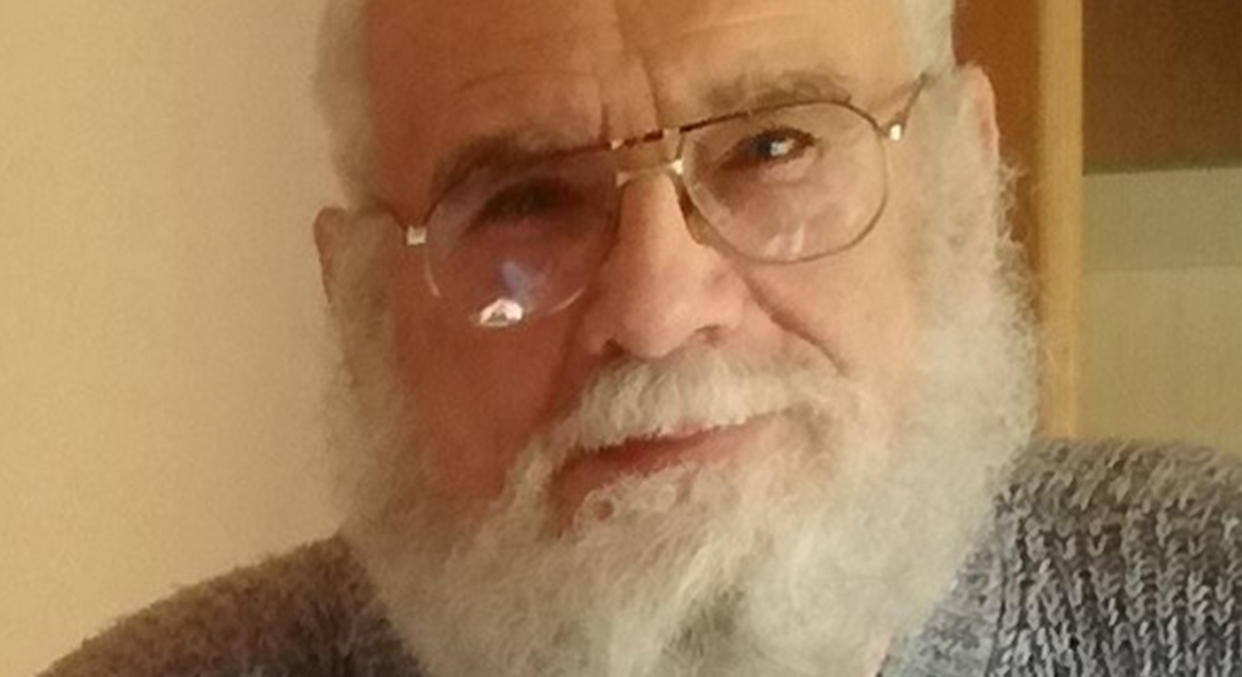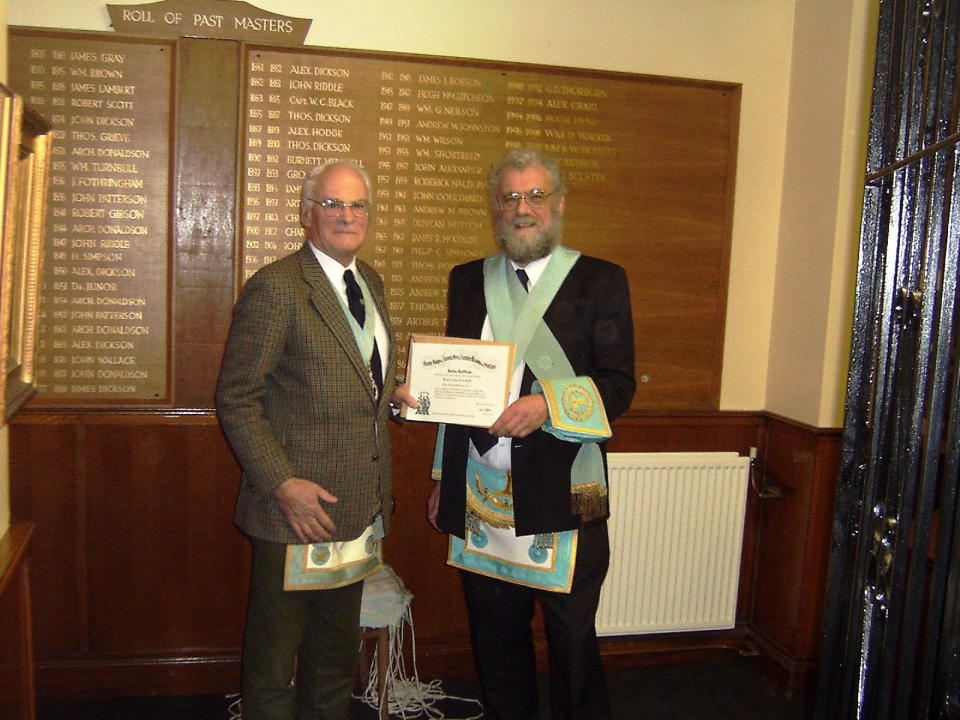Cancer sufferer reveals he is ‘disease free’ thanks to ‘internal radiotherapy’ with no side effects

A cancer sufferer has revealed how he appears to be disease free after having “internal radiotherapy”, known as brachytherapy.
David Robb, 69, from Peebles in Scotland, went to his GP after he started passing urine more frequently than normal.
An MRI scan and biopsy eventually revealed the retired secondary school teacher had prostate cancer.
Read more: Prostate cancer set to become the most common form of the disease in the UK
Robb was offered surgery, radiotherapy and hormone treatment, but was concerned by the side effects. Prostate cancer treatments commonly cause urinary incontinence and erectile dysfunction.
Following the advice of his doctor, he opted for brachytherapy.
On 14 February, Robb had around “28 seeds with radioactive material” implanted into his prostate to emit radiotherapy that did not reach his surrounding organs.
After taking two paracetamol the following day, the married father was discharged from hospital.
A scan, blood test and check-up has left doctors confident the treatment was a success.

PSA tests not routinely carried out
After urinating more than was normal for him, Robb requested a prostate-specific antigen (PSA) test from his GP in January 2017.
Unlike mammograms for breast cancer or smear tests for cervical tumours, there is no screening programme for prostate cancer.
PSA screening has been suggested, with levels of the protein sometimes being raised in cancer sufferers.
Up to 15% of patients have normal PSA levels, however, leading to a false-negative result.
False-positives, where a test suggests cancer that is not there, can also occur.
PSA tests may also reveal a tumour that is slow growing and would not cause symptoms or shorten life.
This may trigger patient anxiety, causing them to opt for unnecessary treatment with side effects.
Read more: Immunotherapy gives hope for 'incurable' prostate cancer
Robb’s GP reportedly warned him of the complications that can arise from a PSA test, but he decided to go through with it anyway.
After two relatively normal results over as many years, a third PSA test carried out in July 2019 came back at 4.2 ng/mL.
Although there is no “normal” reading, doctors may recommend further assessment if it is above 4.0 ng/mL.
In Scotland, the next step is for doctors to carry out a biopsy of the prostate, followed by an MRI scan.
Upon carrying out his own research, Robb requested to have the scan first, as is routinely done in England.
“Blind biopsies are not good,” he told Yahoo UK.
Brachytherapy ‘works from the inside out’
Robb was diagnosed with second stage prostate cancer, which had not spread beyond the organ.
“I was expecting it,” he said.
“The MRI scan identified a lesion of 1.6mm, which the doctors said was almost definitely cancer.”
For many men, immediate treatment is not required due to prostate tumours generally being slow growing. Some therefore opt for “watchful waiting” while a doctor monitors how their cancer is progressing.
“I was recommended treatment as it was stage two,” said Robb. “I didn’t see the point in delaying.”
Robb was referred to the Western General Hospital, Edinburgh, in December 2019.
After turning down “traditional” treatments, he opted for brachytherapy, “fitting the criteria” in terms of age and overall health.
Read more: At-home urine test could 'revolutionise' how prostate cancer is diagnosed
“It is a one-off,” said Robb.
“They give you a general anaesthetic. They insert hollow needles into the prostate in the space between the back passage and the testicles; and insert metallic seeds with radioactive material.
“About 28 seeds were planted that give out radiation for several months.
“Unlike radiotherapy, this works from the inside out.
“The radiation stops after so many millimetres and doesn’t affect the other organs.”
Robb spent the night in hospital after doctors warned him he would be urinating a lot.
“The recovery for me was two paracetamol,” he said.
“I peed all night and in the morning I was back to normal
“I was expecting blood in the urine or feeling like someone had kicked me, but I had no pain.”

‘I intend to enjoy life for 10 to 15 years yet’
Several months on, Robb has “basically gone back to normality”.
Around three weeks after the procedure, he had a scan to ensure the “seeds” were in the correct place.
A PSA test at the beginning of May revealed his levels have gone down to just 1.2 ng/mL.
Due to the coronavirus outbreak, Robb had a review over the phone, where he told his doctor he was feeling well.
He is expected to have check-ups every six months, potentially going down to once a year, for the rest of his life.
Robb is speaking out to encourage people to do their own research when it comes to their health.
He was motivated to read up on prostate cancer after developing kidney stones and not knowing enough to “have the best options straight away”.
“I understand the health service doesn’t want to get caught up in a large screening programme with false positives, but you have a responsibility to take care of your own health, you need to be informed of the risk and benefits,” said Robb.
“I thought about my age, the figures showing the rapid growth [of my PSA]; then [I thought], ‘you want to do something about this’.
“You have to be informed, this is not about guessing.
“I was arguing for a clear, logical diagnosis.
“I intend to live and enjoy life for 10 to 15 years yet.”
What is brachytherapy?
Brachytherapy is available on the NHS in certain places.
The idea is to bring the source of radiation as close to the tumour as possible.
At the Christie NHS Foundation Trust in Manchester, special machines called “afterloaders” hold the radioactive source – which is smaller than a grain of rice – in a safe place outside the body until it is needed.
Specialists then use “complex computers” to precisely plan the treatment to sub-millimetre precision. This allows the radiation to be manipulated to the exact area where it is needed.
Due to the radioactive source being so close to – or even inside the tumour – a high dose can be administered while limiting damage to surrounding healthy areas.



